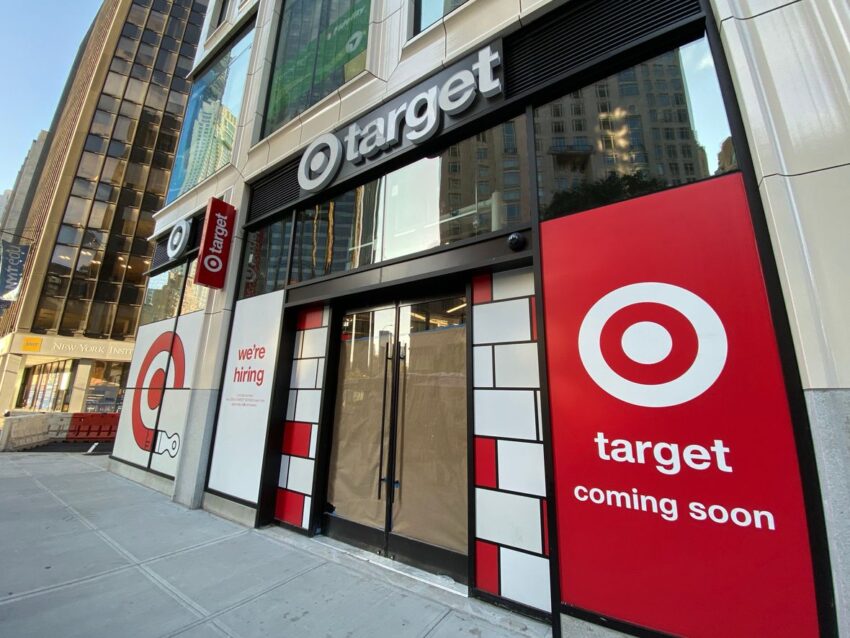Target Corp. on Aug. 20 named Chief Operating Officer Michael Fiddelke as its next chief executive officer, succeeding longtime CEO Brian Cornell, as the retailer reported quarterly earnings that topped Wall Street estimates despite a sales decline.
Fiddelke, a 20-year company veteran who previously served as Target’s chief financial officer, will take over as CEO and join the board on Feb. 1, 2026, the company said in an Aug. 20 release. Cornell, who has led the Minneapolis-based retailer since 2014, will move into the role of executive chair.
“Michael is the right leader to return Target to growth, refocus and accelerate the company’s strategy, and reestablish Target’s position as a leader in the highly dynamic and fast-moving retail environment,” Christine Leahy, lead independent director of the board, said in a statement.
The succession marks the end of an era for Cornell, who is widely credited with steering Target through a major transformation. Under his leadership, the retailer leaned into its “stores as hubs” model, expanded same-day services such as Drive Up, and built up a $30 billion portfolio of owned brands. The board noted that during Cornell’s 11 years at the helm, Target’s revenues grew by $34 billion, turning it into a $100 billion-plus company.
Cornell called it a “privilege” to lead Target and said Fiddelke’s “remarkable level of resolve in the face of complex challenges” and passion for growth would be critical in shaping the company’s next phase. Fiddelke, who has held leadership roles across merchandising, finance, operations, and human resources, said he was stepping into the role with “an urgent commitment to drive growth and deliver better results.”
The leadership announcement coincided with the release of second-quarter financial results. Net sales edged down 0.9 percent to $25.2 billion, while comparable sales declined 1.9 percent. Store sales dropped 3.2 percent, although that was partly offset by 4.3 percent growth in digital channels, fueled by demand for same-day services.
Profitability fell more sharply. Net income dropped to $935 million, or $2.05 per share, from $1.19 billion, or $2.57 per share, in the same quarter a year earlier. Operating income declined nearly 20 percent to $1.3 billion as higher markdowns, cancellation costs, and category mix weighed on margins.
Still, Target’s revenue results surpassed Wall Street expectations, offering a measure of resilience in the face of challenges. Analysts had forecast quarterly sales of $24.93 billion, according to data compiled by LSEG. The better-than-expected top-line performance reflected improved store traffic compared with the first quarter and broad-based improvements across Target’s six core merchandising categories. Cornell said the numbers showed “encouraging signs of recovery,” pointing to stronger sales momentum in stores and disciplined cost management.
During Cornell’s tenure, Target also navigated significant social and political headwinds. The company came under fire in 2023 for selling LGBT-themed apparel and books for children as part of its annual Pride Month collection. Conservative commentators urged boycotts, comparing the backlash to the controversy that engulfed Bud Light after it partnered with an influencer who identified as transgender. At one point, Target lost more than $10 billion in market value as the boycott gained traction. The company later removed some of the more controversial items, citing employee safety and threats in stores.
Cornell defended Target’s diversity, equity, and inclusion (DEI) efforts, telling Fortune’s “Leadership Next” podcast in 2023 that DEI policies were “good business decisions” that built engagement with customers and employees. But as the political and social mood shifted, Target in early 2025 announced it would wind down several high-profile DEI initiatives, including its racial equity action and change (REACH) program and external participation in the Human Rights Campaign’s corporate equality index. Executives said the decision reflected a need to “stay in step with the evolving external landscape.”
In its second-quarter earnings report, Target also reaffirmed its full-year financial outlook. The company continues to expect GAAP earnings of $8 to $10 per share, or $7 to $9 per share on an adjusted basis, and forecasts a low-single-digit percentage decline in overall sales for fiscal 2025.
If you found this article interesting, please consider supporting traditional journalism
Our first edition was published 25 years ago from a basement in Atlanta. Today, The Epoch Times brings fact-based, award-winning journalism to millions of Americans.
Our journalists have been threatened, arrested, and assaulted, but our commitment to independent journalism has never wavered. This year marks our 25th year of independent reporting, free from corporate and political influence.
That’s why you’re invited to a limited-time introductory offer — just $1 per week — so you can join millions already celebrating independent news.
The post Target Names New CEO, Tops Forecasts Despite Sales Decline appeared first on The Political Insider.
Click this link for the original source of this article.
Author: The Epoch Times
This content is courtesy of, and owned and copyrighted by, http://www.thepoliticalinsider.com and its author. This content is made available by use of the public RSS feed offered by the host site and is used for educational purposes only. If you are the author or represent the host site and would like this content removed now and in the future, please contact USSANews.com using the email address in the Contact page found in the website menu.





